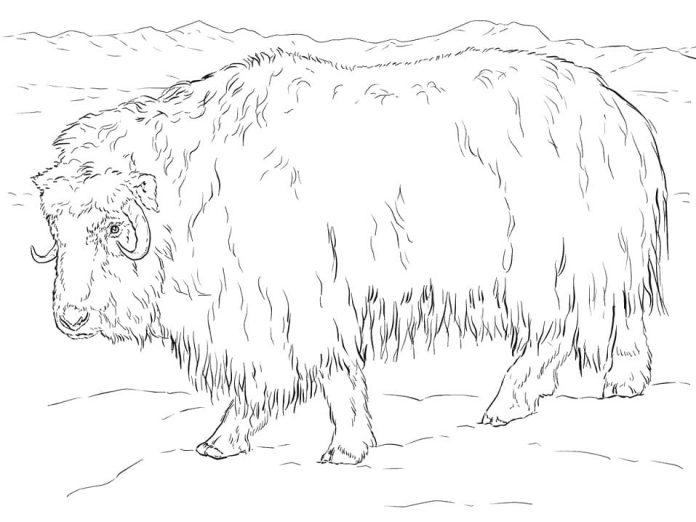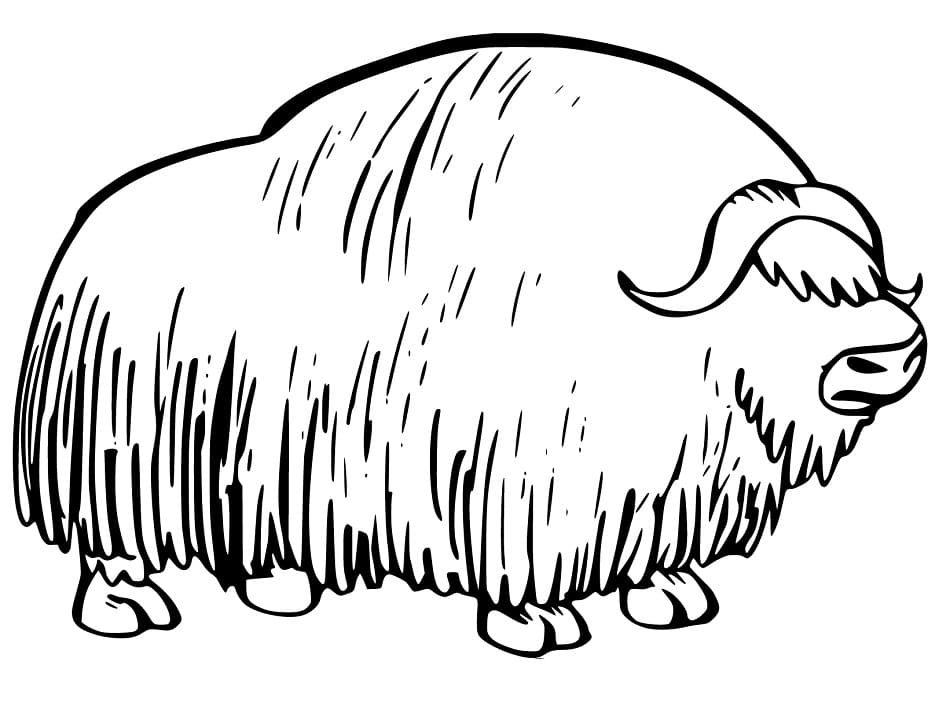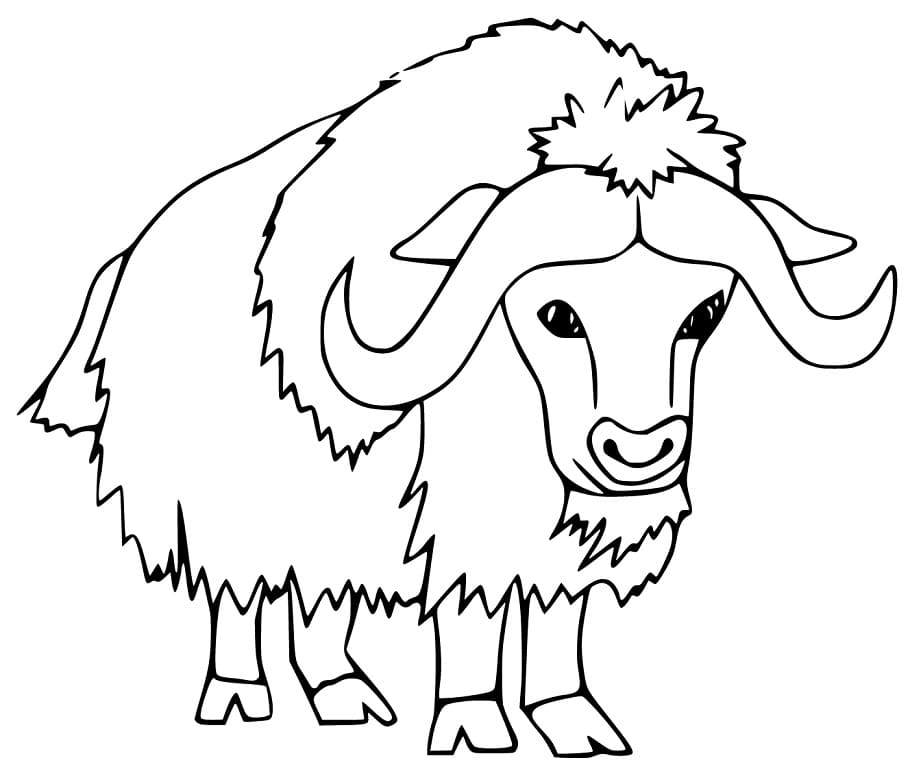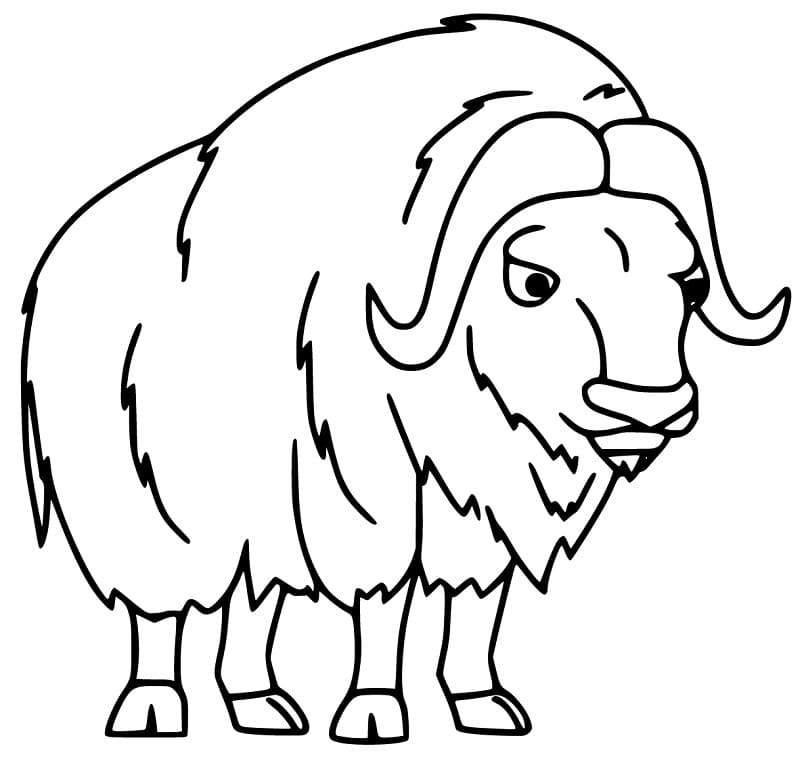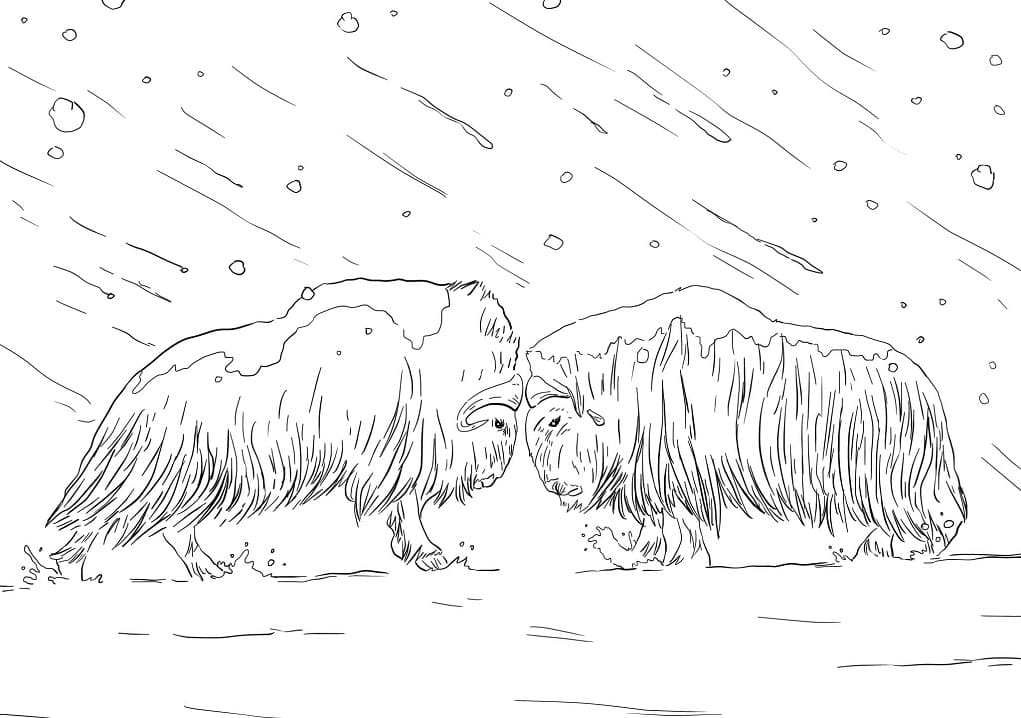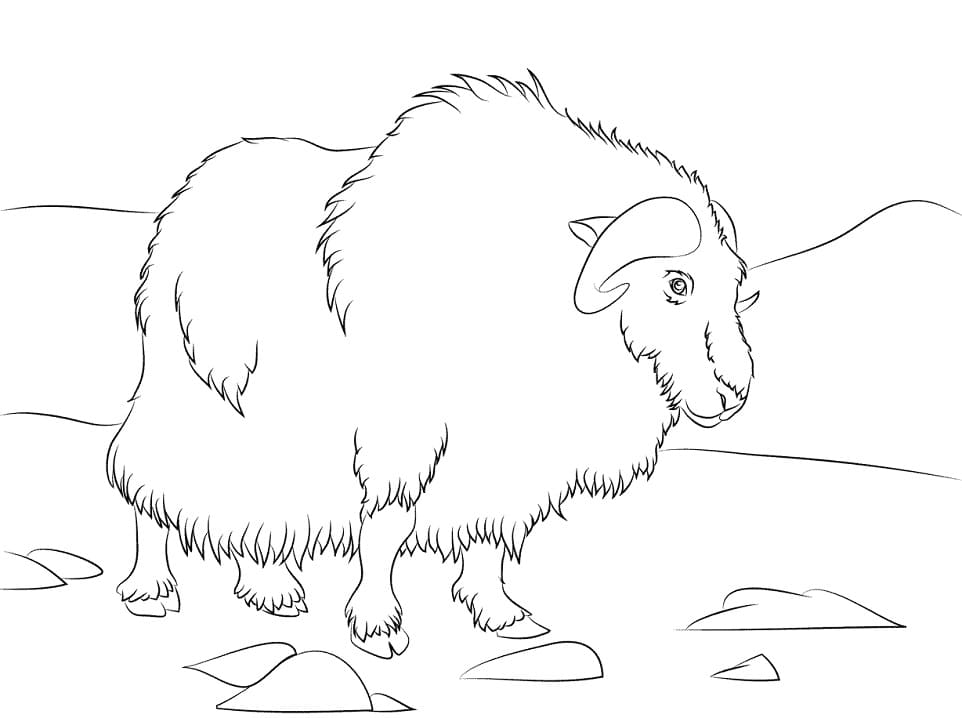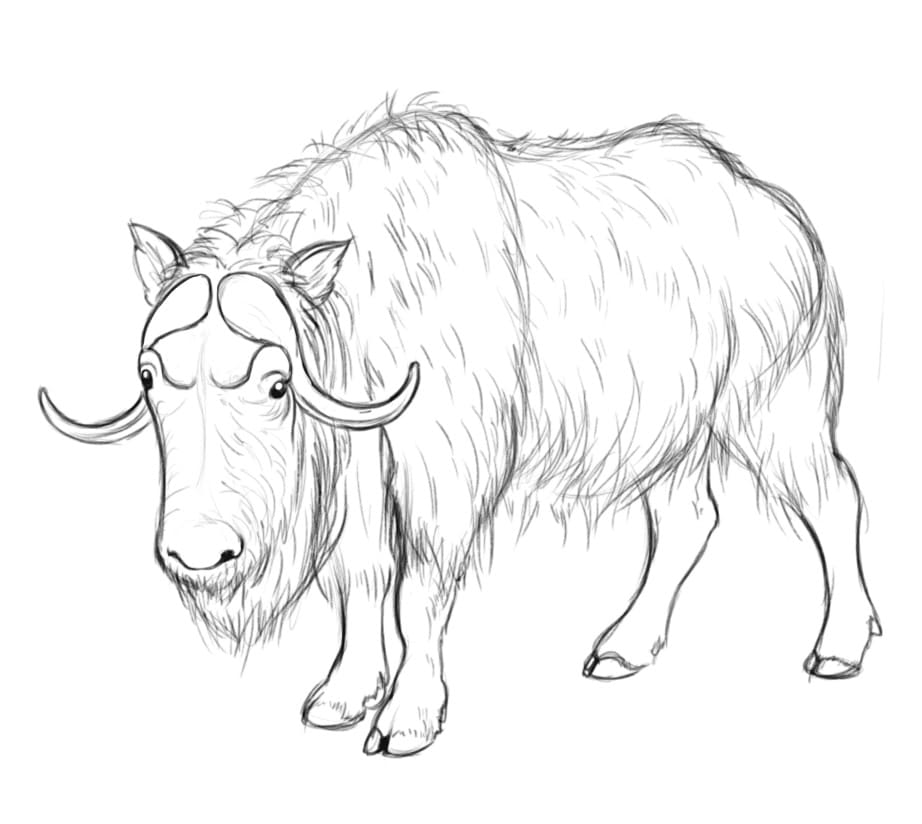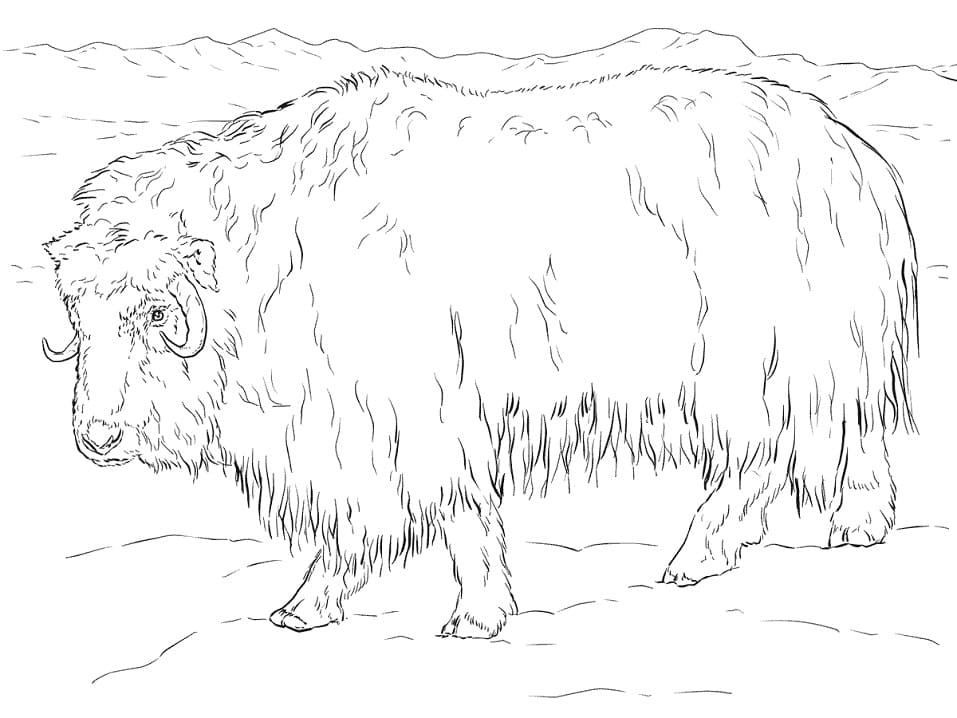Musk ox (Ovibos moschatus), also known as musk ox, is a species of cloven-hoofed mammal in the bovine family that inhabits the Arctic areas of North America and Greenland. The name "musk ox" comes from the strong odor emitted by males during the breeding season.
Musk Ox - interesting facts and information
- Appearance: Muskoxen are large animals with a strong body structure. Adults reach a height at the withers of 1.1 to 1.5 meters and can weigh from 180 to 410 kg. They are characterized by long, dense fur that can reach up to 60 centimeters in length in winter and long, curved horns in both sexes.
- Diet: Muskrats are herbivores, feeding mainly on grasses, mosses and other tundra vegetation. In winter, they are capable of finding food under the snow.
- Behavior: Muskrats live in herds, usually numbering between 10 and 20 individuals, although some herds can number as many as 70 animals. When threatened, the flock lines up in a defensive formation, forming a circle around the females and young, with the males confronting the potential predator.
- Reproduction: Females give birth to one cub (rarely two) every year, after a gestation period of about 8-9 months. The cubs are able to move and follow the herd within just a few hours after birth.
- Distribution and habitat: Muskoxen inhabit the arctic tundras of North America and Greenland. They inhabit diverse areas, from open plains to steep mountains.
- Threats and protection: Muskrats were on the verge of extinction in the early 20th century due to intense hunting for meat, skins and horns. Thanks to conservation and reintroduction, muskox populations have recovered. Today, the main threats to muskoxen are climate change, which is affecting their habitat, and predation by wolves and bears.
Muskoxen are among the most resilient inhabitants of the Arctic, able to survive in extremely cold temperatures and strong winds. They are an important part of the tundra ecosystem and a symbol of the wild north.

